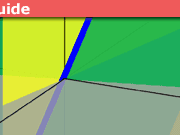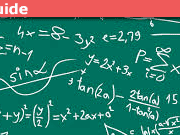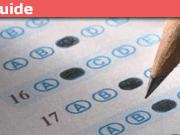High School Physics: Courses, Resources, and Prep Guide
Table of Contents
Why High School Physics Matters
A year-long high school Physics course is important preparation for all college majors in science, engineering, and medicine because students in these majors will all be required to earn credit in a year-long college-level Physics course. Some schools, like our military academies, require every student to earn credit in a year-long Physics course, regardless of their major. Having taught college Physics, I’ve seen the inability to succeed in this course result in many broken dreams and changed majors.
A good high school Physics course also fulfills all or part of the admission requirement of many colleges have for 2-4 years of laboratory science and at least one year of physical science. Further, it provides valuable preparation and is likely to increase scores on standardized tests such as the math and science portions of the ACT. Physics solidifies student math skills by providing ample opportunities for students to apply their math skills in real-world problems.
However, most parents do not feel confident in their abilities to deliver a good home school Physics course or to help and supplement learning when needed for students struggling in a public school setting. The purpose of this article is to provide options and resources for parents needing to take more of an administrative rather than personal teaching or tutoring role to ensure a strong high school education in Physics.
Background
Algebra-Based (College) Physics
Most colleges have two paths for their year-long introductory Physics sequences. The easier sequence (lower numbered courses) is often intended to fulfill the lab science requirement for BS degrees in disciplines like Biology, pre-med, and possibly some other majors (Environmental Science, etc.), and it may also fulfill the Physics requirement for some Associate degrees and certifications in fields like Engineering Technology and Information Systems.
This year-long sequence is often called “College Physics” or “Algebra-Based Physics” not because Algebra is the only math skill required, but because it is taught without using or requiring knowledge of Calculus. In most cases, these college courses require quantitative problem solving on a daily basis, and students need a strong background in high school algebra and trigonometry.
Calculus-Based (University) Physics
The harder two-semester college Physics sequence is usually called “Calculus-Based Physics” or “University Physics.” It usually has higher course numbers, has Calculus explicitly listed as a corequisite or prerequisite, and is required for most BS degrees in the physical sciences and engineering. In addition to requiring and incorporating Calculus, this sequence also requires a high level of mastery and skill in high school algebra and trigonometry.
Students who have allowed their high school algebra and trigonometry skills to atrophy or who managed to succeed in Calculus with weak skills in these areas will have great difficulty succeeding in University Physics because these skills are used daily in quantitative problem-solving.
Importance of Preparation
It is essential that parents of high school students who may be aspiring to majors or careers that will require the harder Physics sequence in college have them well prepared with a good high school Physics course. The tough University Physics sequence includes much more quantitative problem solving than the easier sequence, and colleges almost never allow transfer credit or other credit in the easier sequence to count for degrees that explicitly require the more challenging University Physics sequence.
The most common reason college students fail out of college or switch to an easier major is the inability to pass a challenging college course like University Physics because their high school work did not give them the work ethic and the skill set to succeed.
Prerequisites
Recommended math and science background
In most cases, students should have completed Precalculus (sometimes called Algebra 3) and a good middle school or 9th-grade Physical Science course and retained a significant mastery of that material before attempting a good high school Physics course. Derek Owens offers a good distance learning course in Physical Science that is intended for 8th or 9th graders and provides a good background for high school Physics.
There are cases where a strong Algebra 2 course that includes trigonometry can have a student adequately prepared for high school Physics. There are also curricula designed around a “Physics First” philosophy of high school science, where Physics is designed to come before Chemistry and Biology in a high school sequence. In this case, it may be that only a strong background in Algebra 1 is required. Parents would do well to match the chosen Physics course with the math background of the student.
When Algebra 1 may suffice
Depending on the student and the relative rigor of the courses, it is not impossible for a student to succeed in high school Physics with a very strong Algebra 1 course (and near-perfect mastery of the material) and a strong middle school science background which may not include a Physical Science course per se. But real mastery and a solid skillset are more important than wishful thinking, biased parental thinking, and padded grades in earlier courses. It is folly to think an “A” represents ongoing mastery. Good grades are often gifted, and even when they are earned, some skills become rusty or may be quickly forgotten.
ALEKS assessment recommendation
If in doubt, a parent should have students complete an ALEKS Algebra 1 assessment followed (if needed) with a review and refresher course before attempting a high school Physics course designed with Algebra 1 as a prerequisite and likewise for Physics courses requiring Algebra 2 (with trigonometry) or Precalculus. If the student has sufficiently strong math skills, it should take less than 1 week working 1 hour per day. Taking longer is proof positive that the built-in review and refresher is sorely needed before moving on to Physics. At least 90% of the ALEKS pie in the appropriate prerequisite math course should be completed before beginning Physics. This work in ALEKS will also greatly improve math scores on the ACT, SAT, and other standardized tests and is essential preparation for all college-level work in math and the physical sciences.
Derek Owens (Distance Learning)
Derek Owens is the king of distance learning high school math and Physics with a personal touch. Each section includes high-quality instructional videos with practice problems to develop the skill. For students in the Atlanta area, in-person classes are also available. Problems and exercises are worked with pencil and paper, scanned, and uploaded, and graded in a traditional manner. Parents and teachers are emailed copies of results of every assignment and graded event and can log in and check a student’s complete course record at any time. Topical coverage is very good, and the level of rigor and required problem solving are moderate. Both regular and “honors” Physics courses are available.
Derek Owens has degrees from Duke in Mechanical Engineering and Physics, and his approach to developing his high school Physics and math curriculum tends to reflect that. Teaching or supplementing a high school student bound to major in Physics probably requires a higher level of rigor and broader topical coverage, or perhaps supplementation with additional material. Yet, for students hoping to major in many other disciplines requiring college Calculus and Physics and having a strong preference for classroom-style video lessons and pencil and paper assignments and tests, Derek Owens is probably a good choice.
Textbooks
Choosing a textbook for home
There are a lot of Physics textbooks out there, but if I were selecting a book-based program for teaching or supplementing at home, I would take care to choose a program designed for learning without a subject expert present and assisting the student on a daily basis, unless a parent or other family member is sufficiently expert in the subject matter to teach high school Physics. There are textbooks specifically designed for home school use that meet these criteria. There are also books available with accompanying video lectures to help fulfill this role.
Assessment and accountability
The other issue to address when considering textbooks is how the parent will handle assessment and accountability. Students are pretty adept at fooling parents when the best parents can do is ask “Did you do the practice work?” and “Can you show it to me?” Many purported efforts at completing Physics assignments are little more than copied answers from the back with (when required) mediocre attempts at a snow job showing the work to justify the answer. Real assessment and accountability require the human teacher grading written work to be able to distinguish the snow job from legitimate work. If this cannot be worked out in a satisfactory manner, another option for Physics at home would probably be better.
Local Colleges and College Distance Learning
Evaluating college courses
Depending on costs and course offerings, Physics courses through local colleges (and distance learning) may provide excellent high school learning opportunities. However, it can be a challenge for parents and high school students to make course selections appropriate to their interests and prerequisite skills. I would recommend starting by reading the full descriptions in the course catalog and downloading the syllabus for any courses that seem particularly interesting that may be a good fit. Even if a student has not completed a high school Physics course, there may be some offerings (often Conceptual Physics, Astronomy, or other electives) that may be good choices.
Contacting advisers — sample email
However, given the time and expense of enrollment, it is further recommended that the parent or student work with an academic adviser at the school to determine whether a course is appropriate for a student’s background. For example, one might send an email something like:
Dear Academic Adviser,
My daughter is considering enrolling in Physics 1234, College Physics 1, next semester. She completed ALEKS Algebra 2 (with trig) with 78% of the topics in the ALEKS pie, earned a 21 on the ACT in Science, and a 22 on the ACT in Math. She also completed 9th-grade Physical Science with a B. Do you expect this background would prepare her for success in this course at your college? Are there any additional steps of preparation you might suggest?
Best Regards,
Jane Smith, Guidance Counselor, Smith Home School
Of course, parents should note that some college academic advisers may be overly optimistic about student outlooks for success, and a second similar email to an actual instructor of the course can provide a valuable second opinion. The concurrence of both an academic adviser and a course instructor that a student’s preparation is strong is a good sign. Be sure to include all the available information on science and math courses completed (with grades or percentages of the ALEKS pie), as well as all standardized test scores in science and math. Take care not to interpret adequate preparation for one course as an indication that a student is ready for a more challenging course! Heed the advice if it is suggested the student needs another course in science or math to really be prepared.
Coursera
Coursera offers a variety of college coursework either for free or at low cost. Offerings vary from courses intended to prepare students for college-level work, courses matched in rigor and content with college-level work, and general interest courses that do not require strong prerequisite background, but that may not provide needed preparation for further study in rigorous college sequences. My view is that many Coursera Physics offerings one might use in high school lack both the topical coverage and the academic rigor and quality assessment of real, accredited college coursework. Further, the quantity of work and learning from most single Physics courses in Coursera are less than one would desire to provide a full 180 days of Physics instruction for a high school student.
Khan Academy
Khan Academy offers free online coursework in a wide variety of subjects, including high school Physics. The courses are unaccredited but offer high-quality video-centered instruction. Students may enroll online and also gain access to practice problems and assessment tools. Alternatively, students enrolled in separate Physics courses can access Khan Academy videos (either at their site or through YouTube) for supplementary instruction as needed. Videos are available for nearly every topic in a typical high school Physics course.
My students have made great use of Khan’s instructional videos over the years. It’s great when a student finds a good fit between their learning style and a series of videos for supplemental instruction. However, since I have never known a student who used Khan’s Physics courses as the core of their high school Physics, I can’t say with confidence how students using Khan as the core of their high school Physics would transition to real college coursework. It is available and free, so I expect lots of folks will give it a try. I recommend employing alternate assessment methods such as a Coursera or Derek Owens course to evaluate learning quality and ensure adequate progress before students matriculate to college.
South Carolina State Distance Learning
South Carolina State Distance Learning is now offering accredited high school coursework in an a la carte manner through a state-sponsored program. It is available both to South Carolina residents and to residents of other states, whether in public schools, private schools, or home schools. Their courses are aligned to rigorous state standards and are taught by highly qualified teachers who are appropriately licensed by the state of South Carolina.
Available Physics and related courses include the standard college preparatory science sequence (Biology, Physical Science, Chemistry, and Physics), as well as Forensic Science and Environmental Science.
Other distance-learning providers
Other Distance Learning Options
- BYU Independent Study
- Time 4 Learning
- Study.com
- Stanford Online High School
- James Madison High School Online Physics
Conclusion
I’m sure I’ve probably missed a few of the available options, and others may have experiences, thoughts, and observations about the options I have discussed. Feel free to mention other options and observations in the comments below.
I grew up working in bars and restaurants in New Orleans and viewed education as a path to escape menial and dangerous work environments, majoring in Physics at LSU. After being a finalist for the Rhodes Scholarship I was offered graduate research fellowships from both Princeton and MIT, completing a PhD in Physics from MIT in 1995. I have published papers in theoretical astrophysics, experimental atomic physics, chaos theory, quantum theory, acoustics, ballistics, traumatic brain injury, epistemology, and education.
My philosophy of education emphasizes the tremendous potential for accomplishment in each individual and that achieving that potential requires efforts in a broad range of disciplines including music, art, poetry, history, literature, science, math, and athletics. As a younger man, I enjoyed playing basketball and Ultimate. Now I play tennis and mountain bike 2000 miles a year.








“There are text books specifically..”
Link is wrong
"There are text books specifically.."Link is wrong